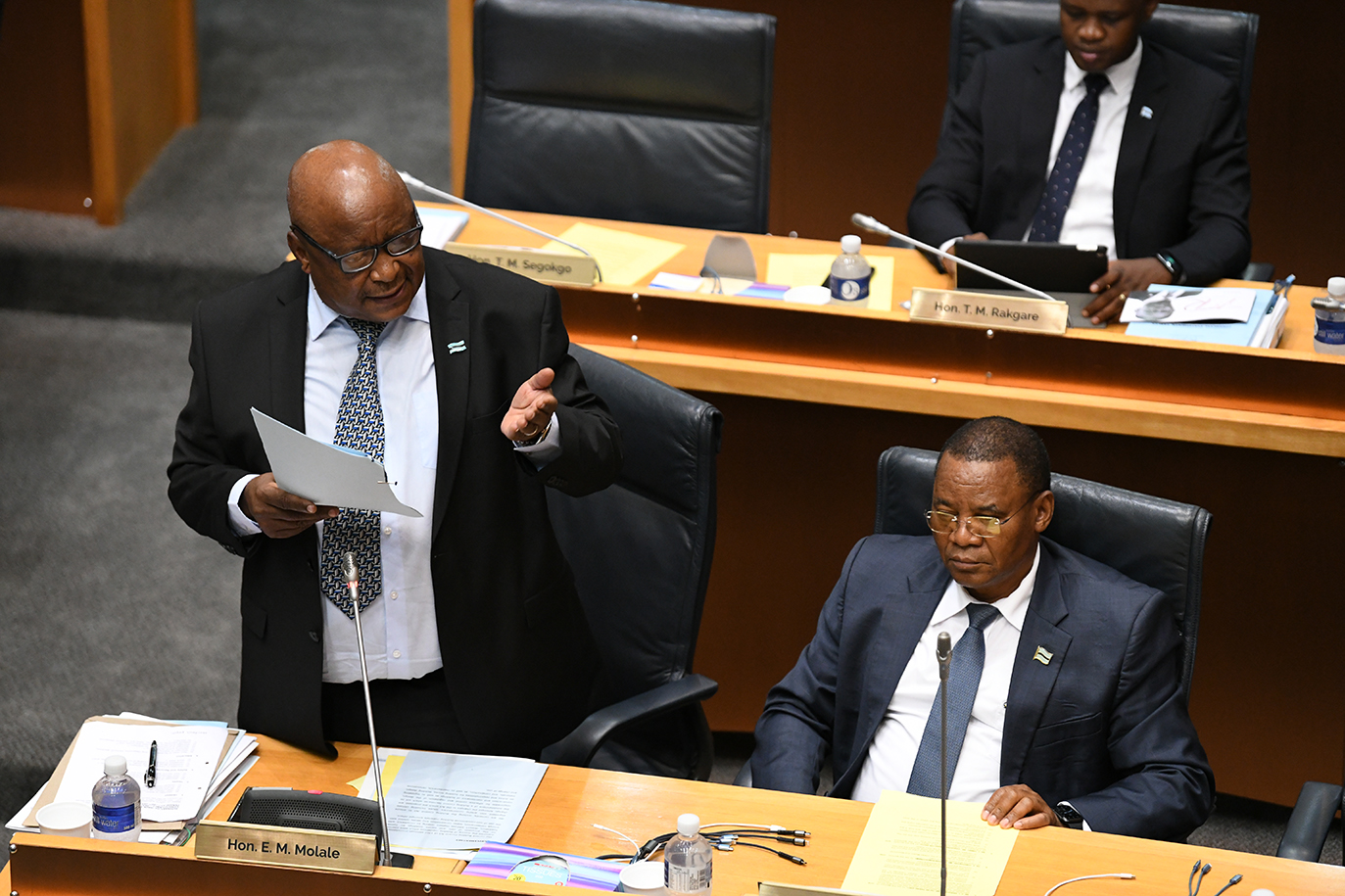Stagnant rentals threaten BHCs mandate
21 Feb 2023
Minister of Transport and Public Works, Mr Eric Molale has told Parliament that the absence of rentals for 17 years was beginning to threaten Botswana Housing Corporation’s sustainability and ability to discharge its mandate.
Minister Molale said this in response to a question in Parliament on Monday saying that rental increases enabled BHC to better discharge. “By levying economic rates, for instance 80 per cent of market, BHC is able to continue to operate without government financial support. I want to emphasise that BHC does not receive government subvention for its operations but relies on money it generates,” the minister explained.
He said that BHC was due to adjust its rentals effective April this year and that was in line with a decision taken three years ago for the corporation to gradually increase its rentals towards 80 per cent of the market or economic rate over a period of five years.
“Rentals have been adjusted gradually for three years. A typical BHC low cost in Gaborone started off at P460, then to P550 and again to P756 and is now scheduled to be P1048. By comparison a similar house in the market is currently P2200. Adjustments in rentals by BHC is not related to salary adjustment of its tenants,” he said.
He added that the next adjustments would be the third of the five-year gradual increases.
Mr Molale told MPs that before the gradual increases, BHC’s rentals had remained stagnant for 17 years despite the rise of operational and maintenance costs. He explained that stagnation of rentals over the years resulted in significant operational challenges which threatened the corporation’s ability to continue to provide products and services. He added that such challenges included, among others, widespread illegal subletting of BHC properties at full market rentals, shrinkage of revenue to cover maintenance, rates and other overheard costs.
He said the low financial yields created by the stagnant rentals threatened BHC’s ability to access funding for new developments while a huge lag in its rentals created distortions in the property market.
Furthermore, Mr Molale said government recognised housing as a basic need hence the establishment of BHC to provide such to citizens and residents in the country. He indicated that the corporation played a significant role in national economic and social development, particularly through its contribution to employment creation, citizen empowerment through home ownership, poverty alleviation and social security.
Mr Molale said BHC had, since 1971, delivered about 30 000 units in various locations across the country and significantly contributed to the development of cities, towns and villages. “BHC engages private sector companies to undertake its construction, thereby benefitting the companies and those employed,” he said.
Mr Molale also urged legislators to understand government’s intentions on rationalisation of State Owned Enterprises (SOEs) under the Reset and Reclaim Agenda, adding government encouraged and required that SOEs remained self-sustaining to ease the burden of funding from government.
“A close look at BHC business model will reveal that it is operating more like a private entity other than its shareholding being 100 per cent government. Government therefore currently has no plan to privatise it,” he said. Gaborone Bonnington South MP, Mr Christian Greeff had wanted to know, among other things what necessitated BHC’s rental increase and how such was related to salary increases and inflation. He also wanted to know how the increase was related to the corporation’s mandate. ends
Source : BOPA
Author : BOPA
Location : GABORONE
Event : Parliament
Date : 21 Feb 2023




